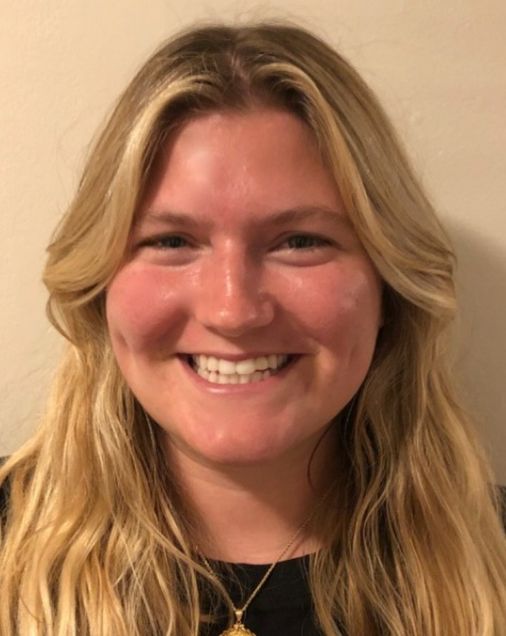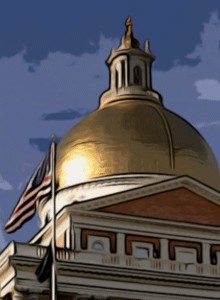End the Request: It’s Time for Boston’s Biggest Landowners to Pay Their Fair Share
For the second time, Massachusetts State Representative Erika Uyterhoeven (D-Somerville) filed a bill concerning payments in lieu of taxes to cities and towns. This bill would strengthen and codify a Boston program, which requests payment from certain institutions that do not pay property taxes. It is important that this bill passes during the 2023-24 session because, without it, Boston (and other municipalities) will continue to subsidize large, private organizations at the expense of its own residents.
The City of Boston’s budget
The City of Boston’s operating budget consists of revenue from property taxes, state aid, local revenue, and, to a small extent, non-recurring revenue (e.g., funds from the American Rescue Plan Act). This revenue is used to fund programs and services, including public education, public safety, city departments, and transportation. Property taxes are consistently the City’s largest source of revenue, and its share size continues to increase as state aid decreases. For example, 74% of the City’s revenue is derived from property taxes this year compared to 52% in 2002.
Boston residential taxpayers currently pay $10.74 per $1,000 value in property taxes. This number is higher than its surrounding municipalities: Cambridge taxpayers spend $5.86; Somerville taxpayers spend $10.34 and Medford taxpayers spend $8.65. Boston commercial taxpayers, including small businesses pay $24.68 per $1,000 value in property taxes. This number is also higher than its surrounding municipalities: Cambridge commercial tax payers spend $11.23, Somerville commercial taxpayers spend $17.35, and Medford commercial taxpayers spend $16.56.
Part of the reason why Boston’s property taxes are so high is that Boston’s tax base is constrained. Boston’s geographic region is relatively small and is home to many tax-exempt institutions.
52% of Boston’s area is tax exempt.
Tax-exempt areas include public land owned by the city, state, and federal government along with private land owned by universities, hospitals, and cultural institutions. These institutions are not required to pay property taxes as nonprofit charitable organizations under section 501(c)(3) of the Internal Revenue Code. In Boston, this includes large, private institutions––like Mass General Brigham, Harvard, Boston University, and Northeastern––that together own over $14 billion of Boston’s real estate.
These large institutions do make some financial contributions to the city of Boston via the Payment in Lieu of Tax (“PILOT”) program. The PILOT program asks educational, medical, and cultural institutions with more than $15 million worth of tax-exempt property to make voluntary payments to the City of Boston. These contributions are supposed to be 25% of the would-be property taxes, and up to 50% of this payment can be in the form of “community benefits.” The 25% represents a “fair share” because large institutions’ use of essential services, such as fire safety, roads, public transportation, and sewage disposal generally make up 25% of a municipality’s budget.
The PILOT task force defines Community benefits “as services that directly benefit City of Boston residents; support the City’s mission and priorities with the idea in mind that the City would support such an initiative in its budget if the institution did not provide it; emphasize ways in which the City and the institution can collaborate to address shared goals; and, are quantifiable.” For example, these services can take the form of individual scholarships and job training initiatives. Other examples include summer camp and after school activities, preventative medical care, and maintenance of public spaces.
PILOT does not go far enough
Institutions often do not fulfill their PILOT requests from the City of Boston. During the 2022 fiscal year, Northeastern met 67% of its PILOT request. Boston University and Harvard did better, meeting 80% and 79% of their PILOT requests, respectively. However, these institutions tend to max out their community benefits. For example, during the 2022 fiscal year, the City of Boston requested $66,709,087 from educational institutions and received $30,793,921 in community benefits and only $14,788,450 in cash contributions. Here, it is worth emphasizing that $66,709,087 is only one quarter of what these institutions would pay if their properties were not tax-exempt.
 Ever more, these private institutions look increasingly less like tax-exempt charitable organizations. Many of the institutions have large budgets. For example, Harvard has its own Management Company overseeing the investing of its $53 billion endowment. Harvard Management Company is registered as a 501(c)(3) non-profit and does not pay property taxes in Boston.
Ever more, these private institutions look increasingly less like tax-exempt charitable organizations. Many of the institutions have large budgets. For example, Harvard has its own Management Company overseeing the investing of its $53 billion endowment. Harvard Management Company is registered as a 501(c)(3) non-profit and does not pay property taxes in Boston.
Boston should be able to increase the amount of money generated from the city’s PILOT program to alleviate the pressure on its residents and small business owners and to ensure that large institutions pay their fair share for essential services. Changing these institutions from 501(c)(3) status to require payment of property taxes is likely a political and bureaucratic nightmare, especially given these institutions’ reliance on the nonprofit status. That said, some Massachusetts legislators are taking steps to ensure that universities, hospitals, and cultural institutions start to pay their fair share.
Bill H.2963
Representative Erika Uyterhoeven refiled Bill H.2963, An Act Relative to Payments In Lieu of Taxation by Organizations Exempt from the Property Tax on January 19 this year. The proposed bill:
- allows cities or towns to charge 501(c)(3) organizations 25% of their would-be property taxes, so long as the exempt organization owns at least $15 million worth of property;
- requires these cities or towns to adopt an ordinance or bylaw to describing the agreement between the municipality and the tax-exempt organizations; and
- allows these local ordinances and bylaws to have exemptions from payment and considerations of community benefits in lieu of cash contributions.
Importantly, this is a local option bill, which means that municipalities are allowed to require large, non-profit institutions to pay 25% of their would-be property taxes but do not have to. The language of this bill largely tracks Boston’s PILOT program but mandates (rather than requests) the payment of 25% of a large institution’s would-be taxes. It is not clear whether this mandate runs afoul of the Massachusetts Constitution, which requires properties in the same property class (e.g., residential, commercial, industrial) to be taxed at the same rate. It is possible that the bill is meant to be a “fee” rather than a tax, in which case the funds should only be used for essential services.
During the 2021-22 session, Representative Uyterhoeven testified at the previous bill’s public hearing. She emphasized that the bill is for very large institutions and “not for churches, not for small kitchens, or anything like that, it’s really just for the large nonprofits, the health care facilities, universities. This comes from an equity issue around large nonprofits needing to pay their faire share to all of the things that municipal budgets serve them.” That said, the bill does not contemplate an exemption for churches, and it is possible that at least some churches have $15 worth of land and cannot afford the 25% of their would-be property taxes. It would be up to municipalities to include exemptions for specific organizations within their bylaws and ordinances, which may be politically difficult.
The City of Boston should opt-in
Bill H.2963 is currently with the Committee on Revenue. It is not clear that this bill has traction or will pass into law––the legislature has considered similar bills as early as 2013 and the bill was sent for study last session, often a quiet way to kill a bill.
However, if the bill does pass, Mayor Wu and her team should push to adopt an ordinance or bylaw given the City of Boston’s reliance on property taxes. Boston lawmakers should be conscious of their exemptions. One worry is that residents may make value judgments and target organizations that they do not like through a mandated fee.
Boston lawmakers should consider lowering the percentage of community benefits the City of Boston will accept. Although there is great value in community benefits, in practice they benefit individual residents rather than fund the City’s operating budget.
The Massachusetts legislature has an opportunity to fix a loophole in property taxes that allows large, private institutions to take advantage of their 501(c)(3) status to avoid paying property taxes. Bill H.2963 is a step in ensuring that these institutions start to pay their fair share and is a model for other states and municipalities dealing with similar challenges. If the bill becomes law, the City of Boston urgently needs to adopt an ordinance or bylaw to relieve economic pressure on residents and businesses, who currently fund the majority of the City’s operating budget.
 Alison Kimball anticipates graduating with a juris doctor from Boston University School of Law in May 2024.
Alison Kimball anticipates graduating with a juris doctor from Boston University School of Law in May 2024.


